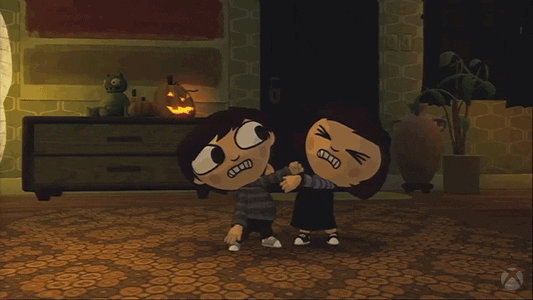- Playroom Parenting
- Posts
- 🥊 Sibling Rivalry 🫶🏽
🥊 Sibling Rivalry 🫶🏽

Weekly newsletter
Brain-based parenting
If your kids have turned your home into a Gladiator-style battleground and are constantly vying for your attention - what is going on and what on earth do you do about it?
PS Love these emails? Join my new community FOR FREE for even more evidence-based parenting advice and support and community from other parents like you (upgrade for personalised help and access to experts, with 3 months free).

What does the research say?
Fights between siblings are normal. Better yet, they are actually useful - they offer a safe space for children to learn social rules, test boundaries and practice conflict resolution. Sounds nice - but probably doesn’t help when you are constantly breaking up fights. So what is going on, why does it matter and what can you do about it?
Whats going on?
Sibling fights can have different causes, often it is the need for attention from parents that has to be shared between siblings, sometimes its battles for toys or food and a (developmentally appropriate) focus on themselves. A key to resolving the fight is figuring out the cause. If the same fights keep occurring, this is a good sign that something is unresolved and needs attention.
You don’t often have an opportunity to intervene in other relationships and situations involving your children- but this one you do, so use it as an opportunity to teach your children conflict resolution skills, managing strong emotions, and even consent (“you can’t hurt or touch your brother, and they can’t hurt or touch you”).
Ever had your kids play nicely and then start fighting out of nowhere? That’s usually a bid for attention - and as with most attention seeking behaviour, the more we give in to it, the more it teaches children that its an effective way to get attention (this is a common source of much “bad behaviour” remember any attention is positively rewarding for kids, even if it is negative attention.
Why does it matter?

Positive sibling interactions are associated with better long-term outcomes and less risky behaviour in adolescence. Sibling relationships are often the longest and closest relationships children have, and provide and important safe space for shared experiences.
If fights between siblings are not managed well, it can result in life-long rivalry between siblings, poor conflict resolution skills and dysfunctional relationships.
What does this mean for my parenting?
➕ Be positive. Kids are going to look for attention, no matter what you do- so you might as well give them positive attention (praise) rather than wait for them to seek the negative kind (shouting). If they are playing nicely, sharing, or helping each other - praise them. Give them lots of praise (make it specific) and it will encourage them to do it again. Always reinforce positive behaviour much more frequently than you point out negative behaviour (this is true of all behaviours, to help the positive stuff to stick!)
🙌🏽 Reward positivity. Schools often implement nomination systems, so kids get rewarded when they nominate other kids for positive behaviours. Both the nominee and nominator get rewarded so that it encourages both helpful behaviours. It also provides another opportunity to reinforce positive behaviours (have I said positive enough yet?!)
👩🏽🏫 Teach conflict resolution skills. I don’t want to give you the ick with “teachable moments”, but you won’t get to teach these skills in situations as frequently as you will between siblings. Important lessons: 1. aggression is not the answer, if your sibling hurts you, don’t hit back, leave and find an adult 2. know when to resolve something yourself, and what tricks you can use (set a timer when sharing toys; have rules around sharing- what is and is not off limits)
Have more questions?
Join my new community FOR FREE for even more advice, support and community from other parents like you
Reply